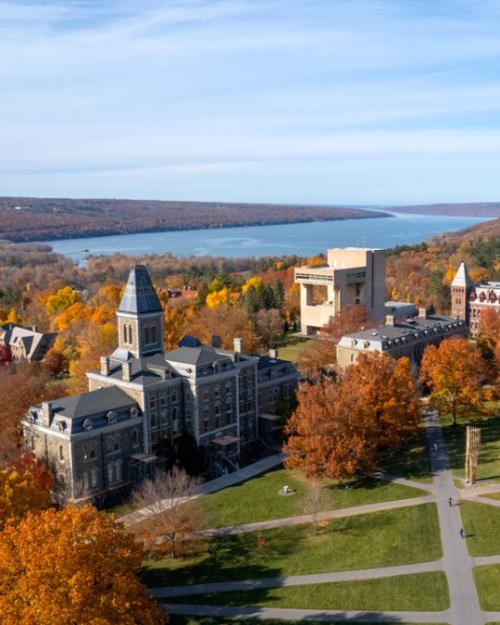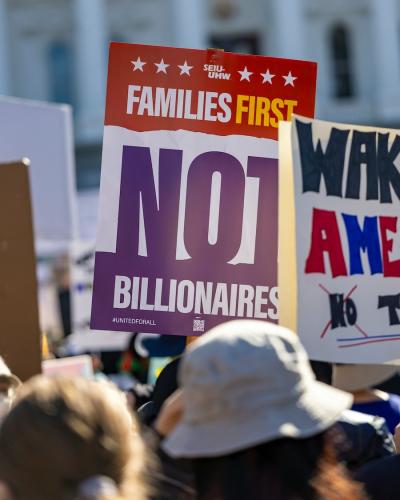Working from home, despite what some employers think, can be great. Unfettered access to your fur babies. No suffering in a freezing office because you control the thermostat. Forgoing a miserable commute. And getting limitless cuddles with your pets. (Did we already say that? 😅)
Living somewhere you can afford is also great. While big cities have lots to offer, a low cost of living isn’t on the trendy menu. We previously touched on remote work incentives, which smaller cities use to lure in mega-metropolitan workers with cushy remote gigs in hopes that their presence will spur economic growth locally. As we’ve mentioned before, there’s little evidence that these programs offer the benefits they claim.
But there’s more to the remote relocation incentive issue that’s rarely touched on: the hypocrisy.
Is Oklahoma OK?
Tulsa, Oklahoma, is a poster child for these initiatives, and the state's Tulsa Remote Program sponsored the first wave of workers in 2019. The program is partially funded by Tulsa billionaire George Kaiser, who became one of the world’s richest people thanks to oil and banking.
Kaiser has publicly said that he feels “guilt” about his wealth, and has acknowledged he and his fellow members of the one percent club only achieved such financial heights due to “dumb luck.” To ease his conscience, he pinky promised in 2010 to donate half his wealth via the Giving Pledge charitable campaign, writing that “I had a moral obligation to direct my resources to help repair that inequity.” We duly note that his wealth has doubled since 2020 and is over $14 billion at time of writing.
Yet his methods of continual wealth accumulation—which are used for these charitable pursuits—are less altruistic. Kaiser owns 56% of Bank of Oklahoma (BOK), which charges $32.50 overdraft fees on its most popular type of checking account. NBC News highlighted how fees like this subsidize the wealthy by squeezing lower-income consumers.
BOK also continues to fund oil-drilling initiatives and is the fifth most prolific underwriter for the greenhouse gas-producing industry. Meanwhile, other banks have scaled back on this funding as part of their climate change commitments. Climate change is expected to hurt Oklahoma directly, (since it is on planet Earth) and the Arkansas River Basin waters—which provide hydropower, irrigation, and drinking water for Oklahoma residents—are slowing down.
Tusla also has a dark history of economic development. While transplant remote workers can get a $10,000 handout, some existing residents have been waiting for reparations since 1921.
A little background: “Black Wall Street” was the nickname given to the Tulsa neighborhood of Greenwood by Booker T. Washington in 1913. (And it wasn’t the only place like it: Other vibrant spaces of Black capitalism existed across the country during Reconstruction, all the way through to the Jim Crow laws.) He advocated for Black self-improvement and self-sufficiency, rather than focusing on combating discrimination. This, he argued, would eventually win the respect of white society and result in integration.
But in 1921, white supremacist violence, aided by the National Guard, interrupted Black capitalistic success. Greenwood was burned to the ground in what the Oklahoma Historical Society says is “believed to be the single worst incident of racial violence in American history.” Author Ta-Nehisi Coates wrote for the Atlantic about how this racist reaction to Black wealth-building made many lose faith in Washington’s philosophy.
To this day, there is resistance to the idea of monetary support for victims of the Tulsa race massacre. An Oklahoma lower court dismissed a suit filed by the last three survivors, who are all 100+ years old and seeking reparations from the city of Tulsa. The Oklahoma Supreme Court is set to hear the appeal, which was filed in August.
Just another case of trickle-down economics
OK, so a billionaire with an interesting money-making track record and a city that refuses to rectify the effects of its troubled past are bad optics. But if new workers come to Tulsa and spend money, will that be a rising tide that lifts all boats?
No, according to an economic sociologist at Cornell University, Cristobal Young, who researches how states leverage taxes to snag new residents. He told the Atlantic that remote work relocation incentives “are a zero-sum competition” that defunds programs for existing residents and encourages other small towns to do the same. In that vein, Daniel Block, writing for the Atlantic, found that only the people getting the cash incentives come out on top—not the places that offer them.
Tulsa’s housing crisis and how it relates to the program is a good example of this. Residents that make $54,000 or less (i.e., the median income) are experiencing the worst of it. Conversely, Tulsa Remote participants earn over $100,000 on average, and they say local housing costs are a big perk to the state. Vox reported that increased demand for housing from Tulsa Remote workers likely is a contributing factor to why existing residents are facing affordability issues.
Tori Tyson, a Black Tulsa resident who owns a hair salon, had to leave the area where her family had been doing business since before the massacre. She told NPR: “It was hard leaving Greenwood—my family, the customers, the history.”
But advocates of Tulsa Remote uphold the few winners to support their trickle-down program. The Black Wall Street Times reported that the “tech boom” among Black-owned businesses is partially thanks to programs like Tulsa Remote.
A working paper from the London School of Economics concluded that this trickle-down framework does 👏not 👏work 👏. Yet, it keeps rearing its ugly neoliberal head. Meanwhile, other locales want to jump into the incentive game, even though evidence of its efficacy is scant. But hey…maybe it’ll be different this time. 🙃





